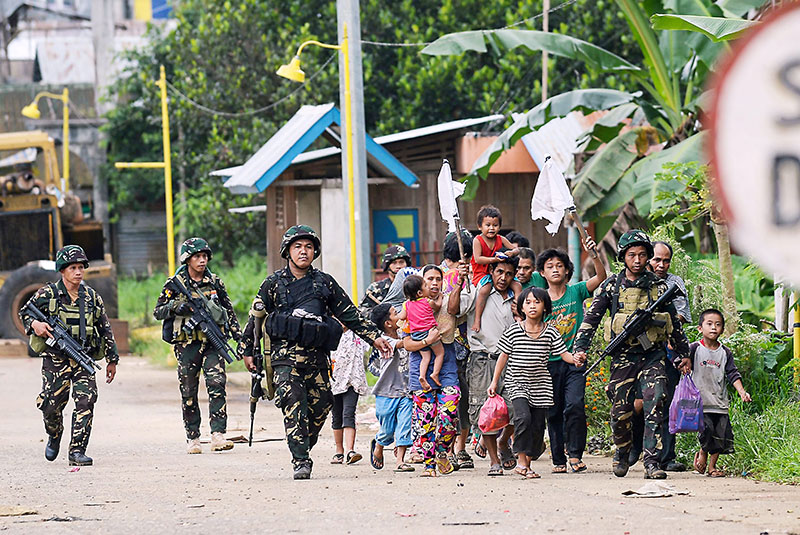
MANILA, Philippines — Petitioners said President Rodrigo Duterte and Congress should not be "trigger happy" in declaring martial law as human rights abuses might happen during such period.
"The import of human rights violations related to martial law and the suspension of the writ is that the President and the Congress must be extra cautious, and not be trigger happy, in proclaiming martial law and suspending the writ or extending them, as the case may be," Rep. Edcel Lagman (Albay) and six other opposition lawmakers said.
While "conceding" that human rights abuses cannot be used to nullify Duterte's year-long extension of martial law in Mindanao, they said that the chief executive and the Congress must be "extra cautious."
"This is so because martial law and the suspension of the [privilege of the writ of habeas corpus] trigger the commission of human rights violations and suppression of civil liberties because the military and police establishments are emboldened to commit excesses detrimental to the people's civil and political rights," the 35-page memorandum filed by the martial law petitioners read.
Lagman, in the memorandum, raised that the military's claim that "not a single human rights violation has been reported" is belied by the Integrated Bar of the Philippines' chapter in Lanao del Sur.
In a resolution by the group dated June 9, 2017, the IBP detailed human rights abuses, privacy invasion and ransacking in residential and commercial establishments in Marawi City perpetrated allegedly by soldiers.
READ: IBP-Lanao del Sur condemns alleged illegal seizures
The Armed Forces of the Philippines, however, denied that its troops were involved in the illegal looting of Marawi establishments and residences. They said that it was the Maute group who carried out the robbery.
The petitioners stressed that: "It is not a question of petitioners' alleged paranoia of martial law, but it is a matter of verifiable and documented experience that martial law and the suspension of the writ spawn human rights violations and transgression of civil liberties, despite the fact that the enforcement of such emergency powers does not suspend the operation of the Constitution like the provisions of the bill of rights."
Lagman joined three other group of petitioners challenging the factual basis of Duterte's extension of Proclamation No. 216 that placed Mindanao under martial law and suspended the privilege of the writ of habeas corpus in the southern region.
Members of the National Union of Peoples' Lawyers, for their part, asked the SC to define "public safety" as it is the "most decisive element in the martial law powers of the President."
The petitioners sought the SC to ask the nullification of the year-long martial law extension.
Solicitor General Jose Calida, who defends the government in the case, asserted that terrorism and rebellion exist in Mindanao.
He said in a memorandum he filed on Wednesday that "martial law as an option of the president exists precisely to address a rebellion that endangers public safety."